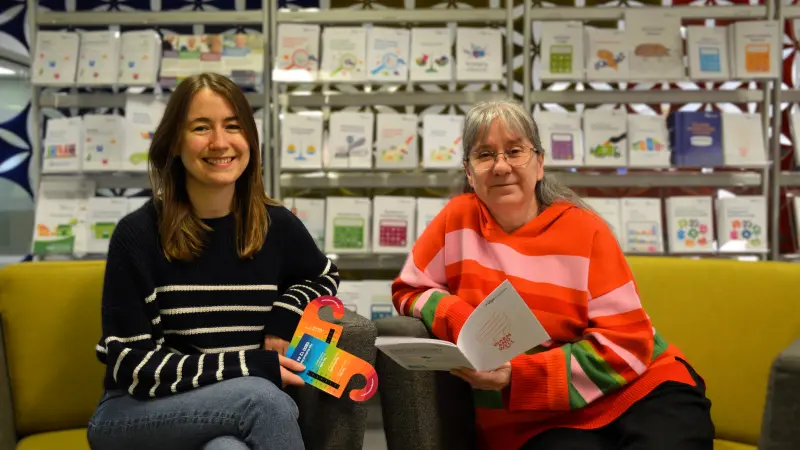Age Scotland call for reflection as Scottish Government announce development of new National Dementia Strategy
Age Scotland’s Head of Dementia, Dr Kainde Manji, has appealed to the Scottish Government to reflect on learnings from previous work when implementing the new National Dementia Strategy.
The development of a new strategy was announced yesterday by Minister for Mental Wellbeing and Social Care Kevin Stewart, who said:
“I look forward to working together with people with lived experience of dementia and other partners to deliver a strategy that keeps Scotland at the forefront of dementia policy internationally.”
Dr Manji has commended the Scottish Government’s commitment to engaging fully with people with lived experience of dementia as the new strategy is developed. However, dementia activists have voiced concerns that learning from previous work will be missed, and highlighted the importance of embedding the voices of lived experience in this strategy and future learning.
To address the apprehensions of those affected by dementia, in a letter to Kevin Stewart, Dr Manji reinforced the need for a human-rights based approach and reflection on previous learning. On behalf of About Dementia members, Dr Manji has asked that any new approach is:
• underpinned by a human-rights-based approach that puts the voices of lived experience at the front and centre of design and delivery;
• based on robust and independent evidence of what is and isn’t working in Scotland and why, learning the key lessons of the pandemic and beyond;
• reflective of the needs of people living with dementia and unpaid carers, ensuring that these are considered both jointly and in their own right;
• grounded in an appreciation of the vital role that communities played throughout the pandemic and with on ongoing commitment to community-based approaches to enable them to flourish sustainably.
While acknowledging that “the world we live in in 2022 is significantly changed from that in 2019 when the fourth National Dementia Strategy was originally announced,” Dr Manji appealed to the Minister to “not miss the opportunity to critically engage with the work that has gone before.”
Dr Manji said:
“In 2019, when your predecessor announced plans to consult on a new Dementia Strategy, we urged that this should be based on meaningful engagement from people with lived experience of dementia, both people living with dementia and unpaid carers of people living with dementia. We also called for any work to be informed by independent evaluation of the previous three Dementia Strategies.
We know that you share our commitment to including the voices of lived experience, and warmly welcome the creation of a Lived Experience panel by the Scottish Government Dementia Policy Unit. However, we are concerned that there has been insufficient progress to date to reflect on the learning from the past 12 years, let alone the challenges posed by the pandemic. Scotland was world leading in the approach taken to the first National Dementia Strategy in 2010 and it would be a shame indeed if this commitment to innovation was undermined by a deficit of policy learning.”
About Dementia members have voiced their views on what should be prioritised as the new strategy is developed. Nancy Gillespie, an unpaid carer and trained nurse, remarked on the need to consider the flaws of the previous dementia strategies, saying:
“We need to reflect back on the previous dementia strategies and ask ourselves why people with dementia, and their carers, were let down so badly during the Covid pandemic. Unless we acknowledge these failings, then it is just more rhetoric going forward.”
Others have called for a renewed focus on Post-Diagnostic Support following the pandemic, as well as improved access to Self-Directed Support. Gerry King, an activist living with dementia, said:
“The next National Dementia Strategy should look at Self Directed Support. In particular, what stage a person has to be in their dementia journey to receive SDS. We need to level up SDS and make it available in all areas. Alongside access to peer support, which is very important.”
James McKillop, an activist living with dementia, agreed but pushed for further support for those living at a later stage:
“Those diagnosed years ago have ever increasing needs as they age, and their deterioration continues. The more needs we have, the less the support we get, however badly needed. The people who fought for years for Post Diagnostic Support for others need to be considered as well. Their needs have mushroomed but are sadly neglected.”
This was echoed by Una Setzekorn, an unpaid carer, who said:
“I had expected that we might have been given an extended period of Post Diagnostic Support, to compensate for it happening during Covid. After one year of no real Post Diagnostic Support, we were ‘signed-off’ - and that was it!”
Dr Manji has extended an open invite for policy makers to engage with About Dementia’s lived experience groups. In addition, the upcoming establishment of communities of learning and practice, the Scottish Meeting Centre Network and the Dementia Friendly Communities Network, will provide a rich ground to discuss priorities for the next National Dementia Strategy.
Dr Manji concluded her letter by highlighting members’ willingness to engage with Government directly, an offer which she hopes will be taken up:
“As ever, our members would be keen to share their experiences with you directly as well as through formal engagement channels and would welcome the opportunity to meet with you either online or in person. We look forward to working with you and alongside our members to make these key priorities a reality.”
- ENDS -


